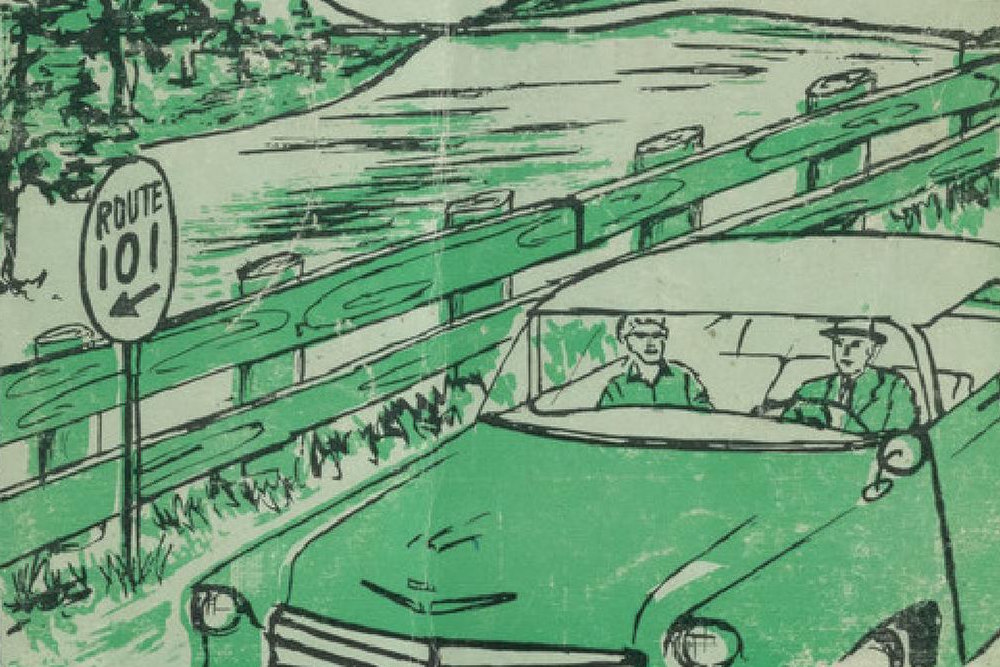Interviews
Finally, a “Road Trip Across India” Novel That’s Not About White Men
Balli Kaur Jaswal's "The Unlikely Adventures of the Shergill Sisters" follows three Punjabi women on a mission

Set mostly in India, Balli Kaur Jaswal’s fourth novel, The Unlikely Adventures of the Shergill Sisters, and her second published in the United States is both a rolicking and suspenseful trip. In it, three sisters come together to fulfill their mother’s dying wish: that they journey to visit a set list of places (Delhi, Amritsar) and perform a series of ritual tasks, from performing seva, or selfless service in the Sikh faith, to scattering her ashes in a particular place.
Rajni, Jazmeen, and Shirina are separated by personality, distance, or both. Rajni, the eldest Shergill sister by more than a decade, is a stickler for order and is thrown into a tizzy when her 18-year-old son announces that he is engaged to a woman twice his age who is pregnant with their child. Her relationship to her sisters is far more maternal than sibling-esque. Jazmeen is an aspiring actress enmeshed in a bizarre viral video scandal. She both embodies the wild, middle child trope, and subverts it. Shirina is the peacemaking baby of the family: she has moved to Melbourne to marry a wealthy man, and lives with him and his controlling mother. Her geographic distance from her sisters has made it easy to remain neutral in family conflicts, and also mum about her own trials.
Each sister also harbors secrets, which are cleverly revealed, often in flashback, as the novel unfolds. Setting aside their long-standing and deep-seated differences, Rajni, Jazmeen and Shirina confront the past and bear towards the future.
I have followed Jaswal’s career since we met in Singapore in 2014 where we quickly became friends and colleagues. I was blown away by her first novel, Inheritance.. It is a graceful and moving book about a family navigating loss and mental illness, as well as a haunting portrait of Singapore post-decolonization. I blurbed her second book, Sugarbread, a young adult novel about food, faith, and family. In other words, I am a fan.
Jaswal is based in Singapore and is currently a doctoral candidate at Nanyang Technological University. We have been in conversation twice before for the publication of her previous novels; I spoke to her this time about writing about women, genre conventions, and the diaspora.
Pooja Makhijani: Your novels concern Punjabi women and their relationships with one another and, more generally, how their lives and bodies are constrained by the patriarchy. Why do you continue to obsess about these themes in your fiction?
Every time I look at the relationships between South Asian women from a different angle, a wealth of issues and potential themes emerge.
Balli Kaur Jaswal: There’s just so much to explore! With Shergill Sisters, I was really interested in the dynamics between the three sisters, each straddling the tension between tradition and modernity in their own ways. They are so different as individuals, and I wanted to see where their paths and values would intersect. I suppose I was also interested in the relationship between birth and death, and the way each of them comes to terms with the idea of mortality.
It feels like every time I look at the relationships between South Asian women from just a slightly different angle, or place them in a new context, a wealth of issues and potential themes emerge. I think it points to the fact that intersectional identities are complex and our stories are well worth exploring.
PM: This novel is three sisters on an epic road trip, not only exploring the tensions among themselves, but also between polarities — tradition and modernity, diaspora and the home country, male and female. How did you come up with its central storyline and characters?
BKJ: I tend to write about the familial relationships between women, and I found sister relationships most intriguing because of how much history and vulnerability they can share. Sisters can be brutally honest with each other — in a way that friends cannot be — with an understanding that the core relationship will stay intact.
I was also inspired by the idea of writing an “in-between” journey story: as in the sisters are traveling to India but it’s not exactly new to them, because they grew up with some aspects of Indian culture, but it’s also not quite home.
I noticed that most road trip narratives in India tend to be from the perspective of men, or white British or American people. So many people from the diaspora “return” all the time, and the experience is quite unique. And the experience of traveling in India as a woman is quite different from the relative freedom that men have.
PM: This is a road trip novel — the road provides both geographical and narrative structure — and the road is often a symbol of freedom in such works. I found Unlikely Adventures to be a clever take of that genre, almost an inversion. Can you speak to this a bit more?
Men travel through India and have this life-changing experience, but it’s often because India is completely new to them.
BKJ: Something I noticed every time I thought about narratives I had come across about traveling in India —The Darjeeling Limited comes to mind, as does an episode of An Idiot Abroad — men travel through India and have this life-changing experience, but it’s often because India is completely new to them, so it’s a fish out of water story, or they have freedom to move, discover and explore without the same repercussions that women and girls face when traveling in India.
I was really curious about the restrictiveness of traveling as women in a country where catcalling and other forms of disrespect are commonplace. There are all these logistics to consider when you travel as a woman in India, like which forms of transport will be safest. We don’t really hear much about the way travel expands or broadens women’s definition of themselves, and we definitely don’t see enough stories about women from the South Asian diaspora traveling to India.
PM: What sort of research did writing this novel entail?
BKJ: I went on a very similar trip — with my parents though — to Delhi, Amritsar, and Chandigarh. We also went to Anandpur Sahib but that didn’t make it into the novel. Besides that, I read a lot of accounts from Indian women on social media and in the press about the daily challenges of asserting their independence in India, from things like so-called “eve teasing” to being called names by neighbors for wanting to live alone, to family pressures to get married so they could “be taken care of.” All of these attempts at owning women and suppressing their autonomy went into the context of this novel.
PM: In a previous conversation, you said, “Diaspora fiction is my favorite genre. It speaks to my experience and helps me understand ways of communicating that experience to a wider audience. To write that sort of fiction is such a privilege.” In Unlikely Adventures, too, you explore diaspora and migration and dislocation with complexity and verve. How do varying diasporic geographies, histories and identities inform your work?
BKJ: I’m interested in the idea that our cultural identities can be fairly fluid if we’ve lived in more than one place. When I was growing up, the common representations of diaspora women always pitted traditional women against modern ones, and created this dichotomy that alienated anybody who identified as both.
I’m interested in exploring the question of what it means to be a South Asian diaspora woman. Does it mean abandoning one set of values and jumping ship to another? Does it mean following traditional values that are passed down by previous generations, and then rebelling? Can it possibly be that women don’t know the answer to this and are allowed to be inconsistent?
PM: Do you think that has changed in popular or literary narratives, or are we still seeing more of the same dichotomies represented?
BKJ: I think it’s changing as we’re seeing more diverse representation, so characters and stories don’t focus entirely on Indian-ness, but other things as well — which end up providing more nuance to the questions of identity, while also telling a good story about characters doing things like traveling, or working on their failing acting careers.
PM: I love the humor in this book (as I did in Erotic Stories). In one particularly memorable scene, Jazmeen becomes involved in an altercation with her dining partner at a high-end Chinese restaurant in South London and causes a rare fish to become so distressed that it leaps out of its tank and onto the floor, where Jazmeen kicks it repeatedly. The scene, although absurd, reveals much about Jazmeen’s backstory and also forwards the narrative. Why is humor so important in your work? How to you balance humor and heaviness (given the book’s darker themes)?
There’s a lot of dark and heavy stuff in our world, but you get through each day by finding the things you can laugh about.
BKJ: I found it easier to balance the humor with heavy themes if I told the story in a fairly lighthearted tone. It’s generally how I look at life too: there’s a lot of dark and heavy stuff in our world, but you get through each day by finding the things you can laugh about. I think the only way to really discuss uncomfortable themes, and to give them a chance to sink in and resonate with people, is to provide a bit of relief with humor.
It was the same with Erotic Stories— I knew I couldn’t talk about women owning their sexuality without some heavier issues surfacing, like honor killings and domestic violence. I made sure that these themes were addressed and considered, but I balanced it out with moments of comedy so it wasn’t all doom and gloom
I think that’s the reality of being from the diaspora though — there’s some hard stuff, and some really funny stuff. They coexist.









